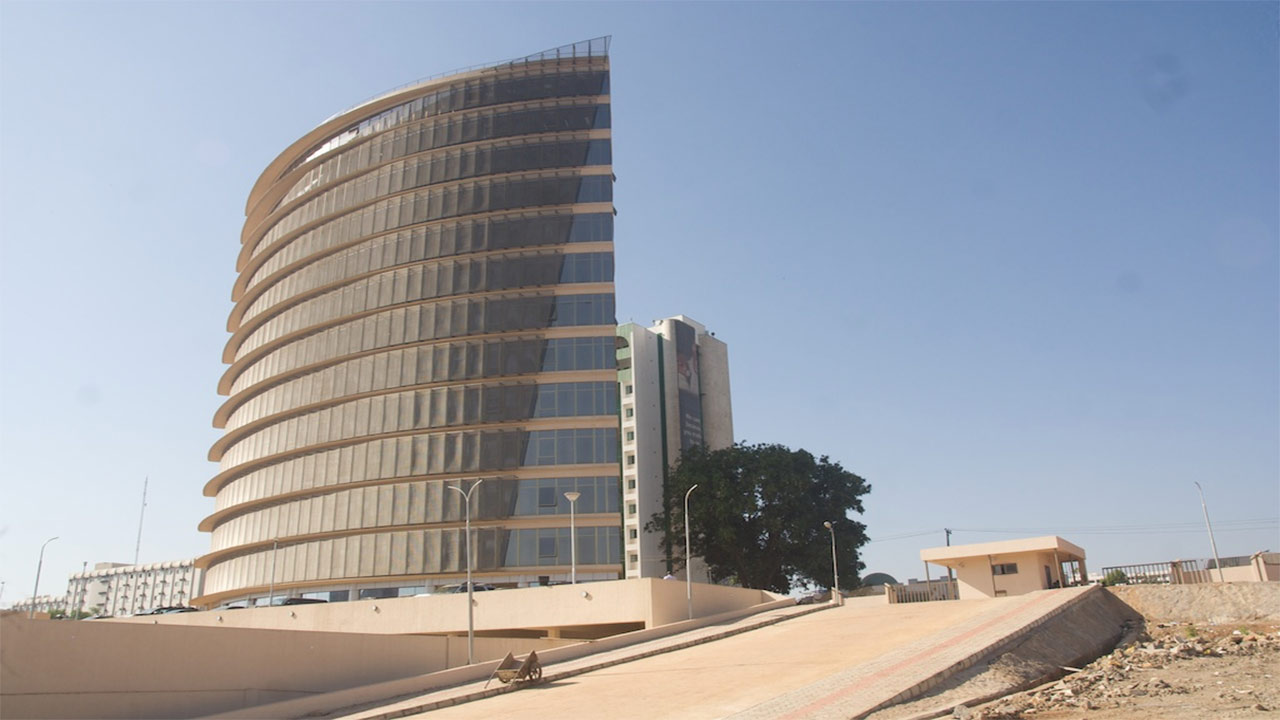Researching that single profitable business in Nigeria today requires a certain skill level, tools and understanding. But to ensure that individuals with the necessary capital and needed commitment invest in a profitable business in Nigeria today, Omobobola Popoola has compiled 13 profitable businesses to consider as of today.
With the current state of the country, having businesses or business ideas which will fetch you a lot of profit is highly welcomed. However, while it is very good to have business ideas, it is imperative that one also knows profitable business in Nigeria to avoid silly waste of money and time.
Some people may have good business ideas, but unfortunately those business ideas are not right for the environment in which they find themselves.
If you are a Nigerian citizen or resident who has just acquired some capital and doesn’t know how best to utilize it, this article is for you. This article will cover profitable businesses that one can dip their toes in, some of them being venturable with only a little capital. These businesses can also be well-executed without a lot of business experience.
Here are some of the profitable businesses you can embark on in Nigeria today, in no particular order:
-
Selling Mobile Phone Accessories
In Nigeria today, this is a very promising business idea. The boom in technology, coupled with the use of smartphones in the country makes the business viable. As common with technology, some of the accessories that accompany phones malfunction or get worn out from time to time.
Mobile phone accessories like wired earphones and wired chargers are prone to tear and wear, and usually stop working when the wires cut (visibly or not). Other accessories that are popularly in demand are memory cards, removable batteries, screen guards, pouches, etc.
The first thing to do would be to obtain a space where you would be selling the accessories, you can even start with a small space. After that, start to purchase some of these accessories and stock up, while trying to drive traffic for your store.
-
Rental Services
As it is popularly known, Nigeria is a very party-heavy zone. Hardly any weekend passes by when people are not hosting parties commonly known as “owambe”. These parties also do not come cheap, as the hosts usually spend quite a lot of money, especially if the host is of a high societal status, or if the party is of an extremely large scale.
Party hosts will always need items that they don’t have readily available. You can acquire items like chairs, canopies, cutlery, cooking utensils, etc. and then start contracting them out to those who need them. You can also decide to contract out these items at an hourly use basis. As your business goes on, you can start to determine what people rent the most and tailor your services to those items.
-
Poultry Farming
This is one potentially lucrative business; it involves rearing and taking care of chickens either for the purpose of meat or for their eggs. These can also be done at the same time, with the layers providing the eggs while other breeds are raised solely for their meat properties.
Chickens are usually used at small gatherings or events, but they are mostly used on big religious occasions like Christmas and Easter.
Millions of naira can potentially be made from this business, but that is largely dependent on the amount of time and money that has been invested into it. With N500,000 and a provided space for the birds, one can purchase the chickens, feeding troughs, chicken feed and so on with the hope of making a lot of money back. This will however only be possible if adequate time and energy are invested in the business.
-
Fish Farming
This is another animal farming-based business that has massive potential to be lucrative in Nigeria. It may even have more potential than the chicken farming business in the short term.
Fish farming varies, but the most common type of fish farming in Nigeria is Catfish farming. The high demand for fish everywhere in Nigeria makes fish farming a particularly profitable business in Nigeria.
-
Snail Farming
Snail farming can be said to be underrated by Nigerians at large. In Nigeria, snail is hardly ever enough as it is a commodity with incredibly high demand yet low supply. This disparity in demand and supply provides the opportunity to make a huge profit from the business.
The farmers involved in this business are also relatively small, and some of them even do the business on a small scale. Investing a large amount of time and energy will definitely yield high returns.
-
Cooking Gas Business
This is a lucrative and evolving, yet ignored business opportunity in Nigeria. People recognize the lucrativeness of petroleum products, but focus more on petrol and kerosene while ignoring cooking gas.
In this business, you can set up your own establishment where acquire cooking gas and supply to retailers or refill gas for consumers. You can do either of the two, or decide to combine and do both. The business also does not necessarily require starting with huge capital (large scale). You can start small and expand as you continue to grow the business.
-
Transportation Service Business
Recent security challenges across the country have left a good number of people reluctant to use public transport or comfortable while using it, if they don’t have a choice.
You can decide to set up a private transportation service, with either buses, cars or bikes (depending on the location). This business has high potential for success, as seen with businesses like Uber and Bolt (Taxify).
One way to set yourself apart from the other transport service businesses is tailoring the business to reach some areas where those other businesses would normally not reach. This could even help to grow the business’s customer base.
-
Hairdressing
Hairdressing is another overlooked business that has the potential to be lucrative. Imagine opening a hair salon in an area that desperately cries out for one, especially when you are particularly good at this craft.
You can start with a small shop, and with proceeds made expand into a much bigger salon in the future.
-
Photography
Photography is fast becoming a highly lucrative business in the country. You can decide to be an event photographer, covering events or provide services to individual customers who want photoshoots.
The fastest way to get the most out of this is to identify a niche; an area of photography where you want to focus on. This could be heavily influenced by interest or ability.
-
Cake Making
Pastries are becoming highly coveted products in Nigeria. From roadside puff puff to the meatpies sold in stalls, and even to the doughnuts sold in restaurants, these baked goods are capturing the hearts of Nigerians.
Of all these baked goods, cakes are arguably the most lucrative and inviting. The sheer effort that is put into making them deserves much higher prices than the other baked goods.
The scale on which the business is being done will also determine how much capital is to be invested into the business. Cake bakers could provide their services at almost all events, including birthdays, anniversaries, weddings, etc. These events would pay considerably more than regular customers.
-
Petrol Station
The cooking gas business has been mentioned earlier in this article, and it would not be right to gloss over the petrol station business. Oil and gas is generally a lucrative business, as Oil is Nigeria’s op export product.
While the petrol station business requires millions of Naira to start, it is almost always guaranteed that the money will be made back. The amount of cars in Nigeria, and which depend on petrol as fuel is enough to ensure that you never run out of customers.
Also, the poor electricity supply in virtually all parts of the country has highly encouraged the use of generators by Nigerians. Most of these household generators are also fueled by generators. This hish usage of petrol, partnered with establishing the station in a populated area is sure to make a lot of income in both the short and long run.
-
Football Viewing Centre
Nigerians, both male and female have a strong love for football. This strong love for the sport would make any provided avenue to watch while at the same time interacting with like minds who also love the sport.
The high recurring bills slapped on TV services like DSTV have forced many lovers of the “beautiful game” to run to viewing centres around them to watch the sport. The three main ingredients required to start this business are a decoder, a big television and space.
This business is even further boosted by the fact that multiple competitions now take place simultaneously, giving the people multiple opportunities to come into the centre, and also giving the owner multiple opportunities to rake in solid income from it.
-
Waste Management
The collection and disposal of waste in (populous) areas in Nigeria is incredibly sub-par. This is why a lot of gutters in many major cities are usually filled with trash items like empty plastic bottles, empty biscuit wrappers, empty water sachets, etc. These items eventually clog up the drainage system, causing flood sometimes.
Nigerians are yet to properly absorb the practice of proper waste disposal. Although states like Lagos are taking steps towards proper waste management, individual Nigerians are still yet to learn waste disposal.
Within the waste management space, there are different business which you could start and make very good income from. You can be involved in recycling waste such as bottles, or even tissue paper. You can also provide garbage collection and disposal services, organic fertilizer production, etc.
The lack of many players in the space could lead to high payments for services.

 Education4 weeks ago
Education4 weeks ago
 News3 weeks ago
News3 weeks ago
 Business3 weeks ago
Business3 weeks ago
 Technology3 weeks ago
Technology3 weeks ago
 Investment4 weeks ago
Investment4 weeks ago
 Investment3 weeks ago
Investment3 weeks ago
 Telecommunications4 weeks ago
Telecommunications4 weeks ago
 Banking Sector3 weeks ago
Banking Sector3 weeks ago































